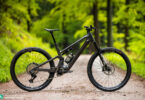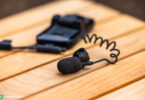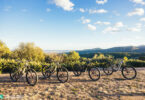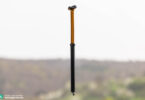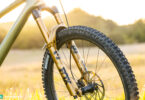The Cannondale Moterra Neo Carbon LT1 wants to unite two very distinct dimensions, convincing both as a high-performance downhill racer and trusted companion for leisurely tours and everyday riding. How does Cannondale’s € 8,999 eMTB fare against 29 of the hottest bikes of the season with its Bosch Performance Line CX Smart System motor?
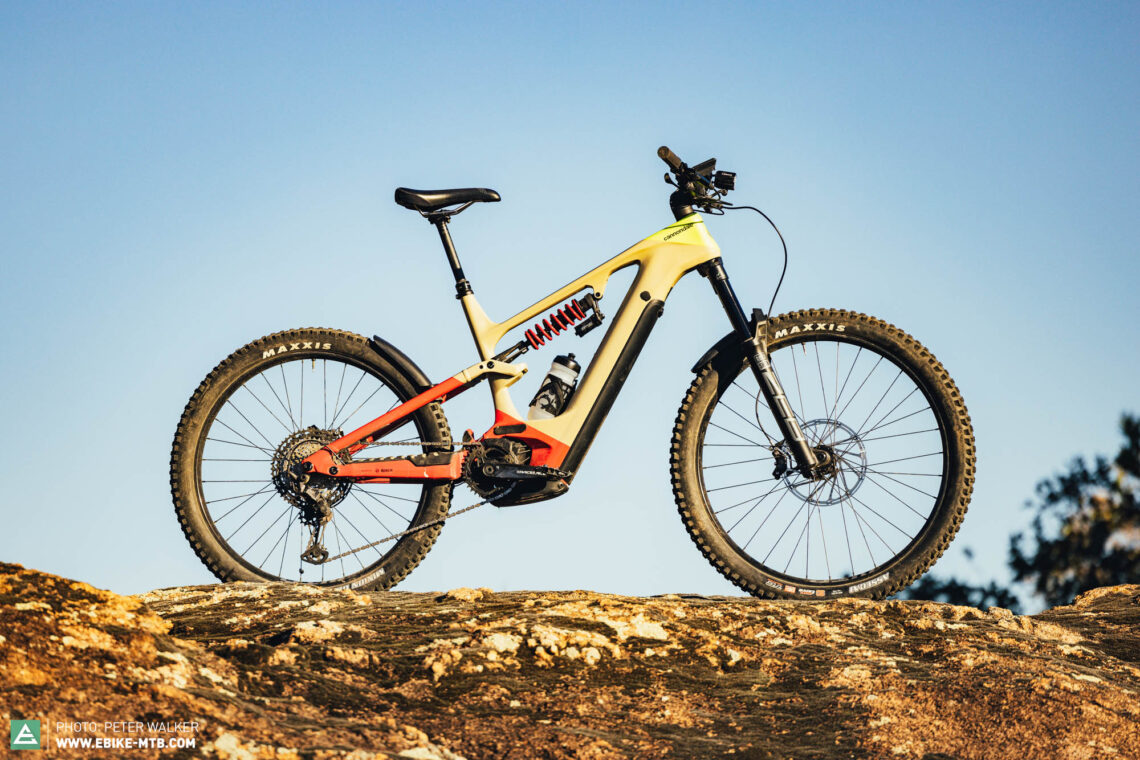
26 kg in size L | € 8,999 | Manufacturer’s website
Cannondale counts amongst the most established and innovative brands in the cycling industry. If there’s a square-wheeled bike prototype catching dust in a warehouse somewhere, you know that it’s at Cannondale’s HQ in Connecticut. The Moterra Neo has been an integral part of their eMTB portfolio for many years and has been taking part in our group tests since 2016. With the Moterra Neo, the American manufacturer has created a versatile frame platform that’s designed to cater to the needs of a wide range of riders and has always struck us as a great all-rounder. “We designed the Moterra Neo with every rider in mind” is the approach Cannondale follows. So it’s hardly surprising that the Moterra is available in two variants, one for trail riders and one fully equipped EQ variant with an alloy frame and countless touring features, like a pannier rack. In our huge 2023 eMTB group test, we tested the Moterra Neo Carbon LT1 (Long Travel). It’s based on the same frame platform as the Moterra Neo, but is meant to be predestined for rowdy trail riding, featuring potent suspension components, a mullet wheel setup, and longer-travel rear suspension. Here’s how the € 8,999 E-MTB fared against the competition in our 2023 eMTB group test.
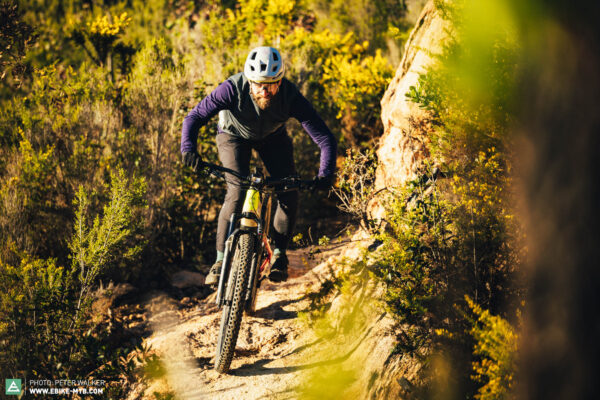
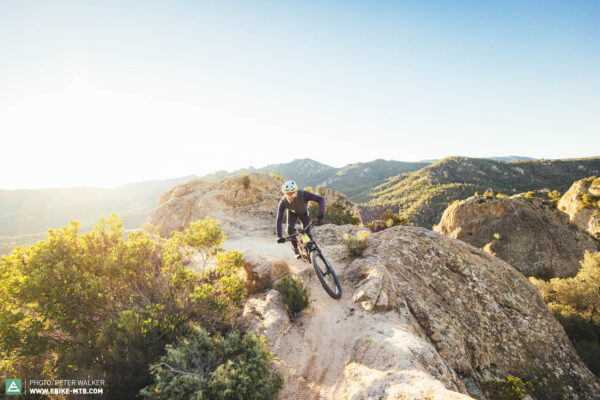
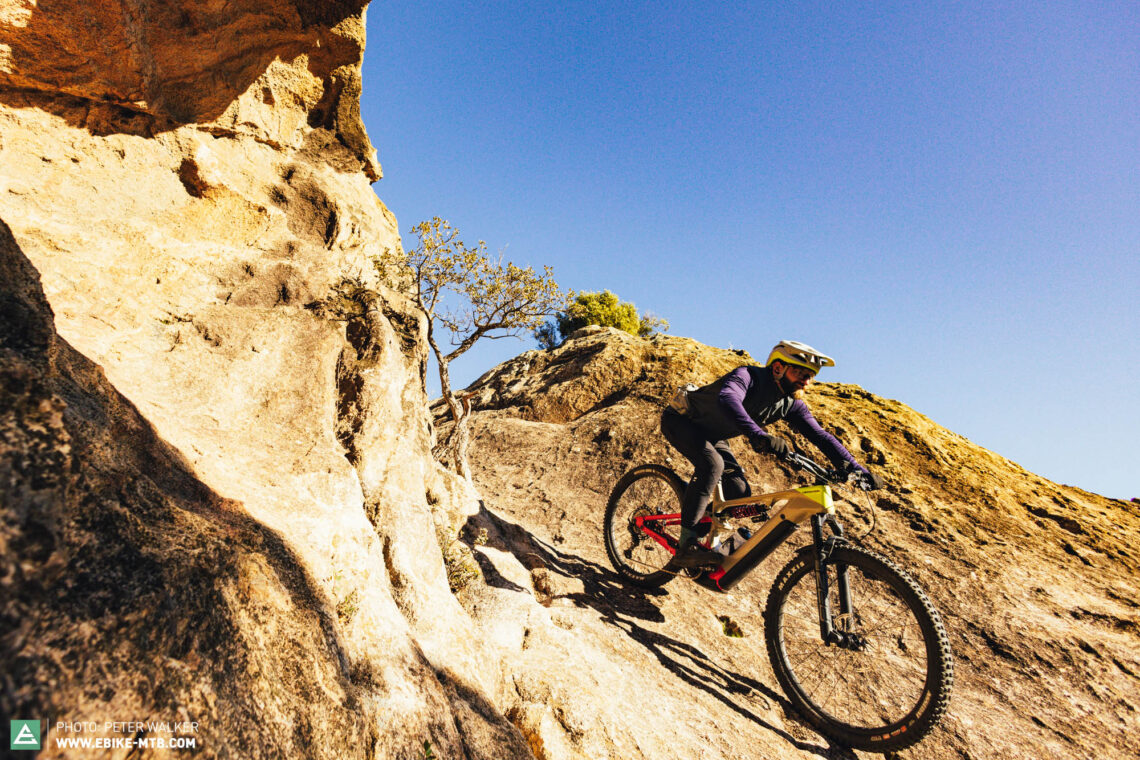
For an overview of the test fleet head to the group test: The best eMTB of 2023 – 30 models in review
Everyday rowdy instead of everyday routine? The commuter-friendly Cannondale Moterra NEO Carbon LT1 in detail
For the current model year, Cannondale have redesigned all Moterra frames to prepare them for the new Bosch Performance Line CX Smart System motor and 750 Wh battery. The charging port sits right above the motor and is protected from muck and water by a solid plastic flap. The long battery can be easily removed through a large opening in the down tube, without the need for tools. However, the battery is secured with a key, which in our opinion is more of an everyday feature than a performance solution for a downhill racer. On that note, the Cannondale Moterra is rather packed with features for everyday riding and touring. The carbon main frame is paired with an alloy swingarm with trailer approval and countless mounting points for mudguards, kickstand and even a pannier rack. Moreover, the Moterra comes standard with two short plastic mudguards and a bright Lezyne Super HB STVZO E1000 headlight with high beam function, which emphasises the bike’s high degree of suitability for everyday use. The rest of the spec leans more towards downhill performance. The beefy 170 mm RockShock ZEB fork is paired with a matching RockShox Super Deluxe coil shock, which controls 165 mm at the rear. However, RockShox’s more affordable Select+ suspension series features far less adjustment options than its flagship Ultimate counterpart, making it harder to fine tune the suspension, especially for ambitious gravity riders. At first glance, the MAXXIS ASSEGAI and Minion DHR II tires have plenty of downhill potential, but upon closer inspection, they feature the hard MaxxTerra rubber compound and thin EXO+ casing, which don’t make them suitable for aggressive riding.
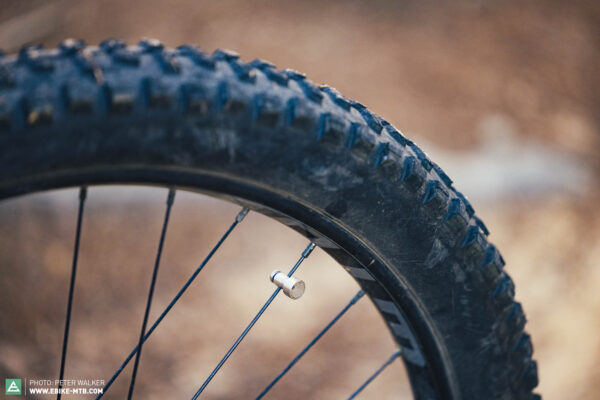
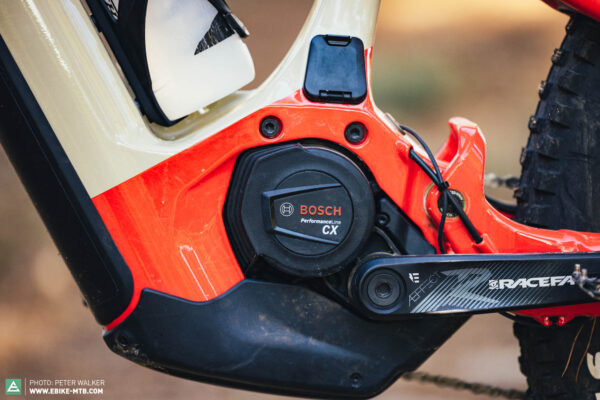
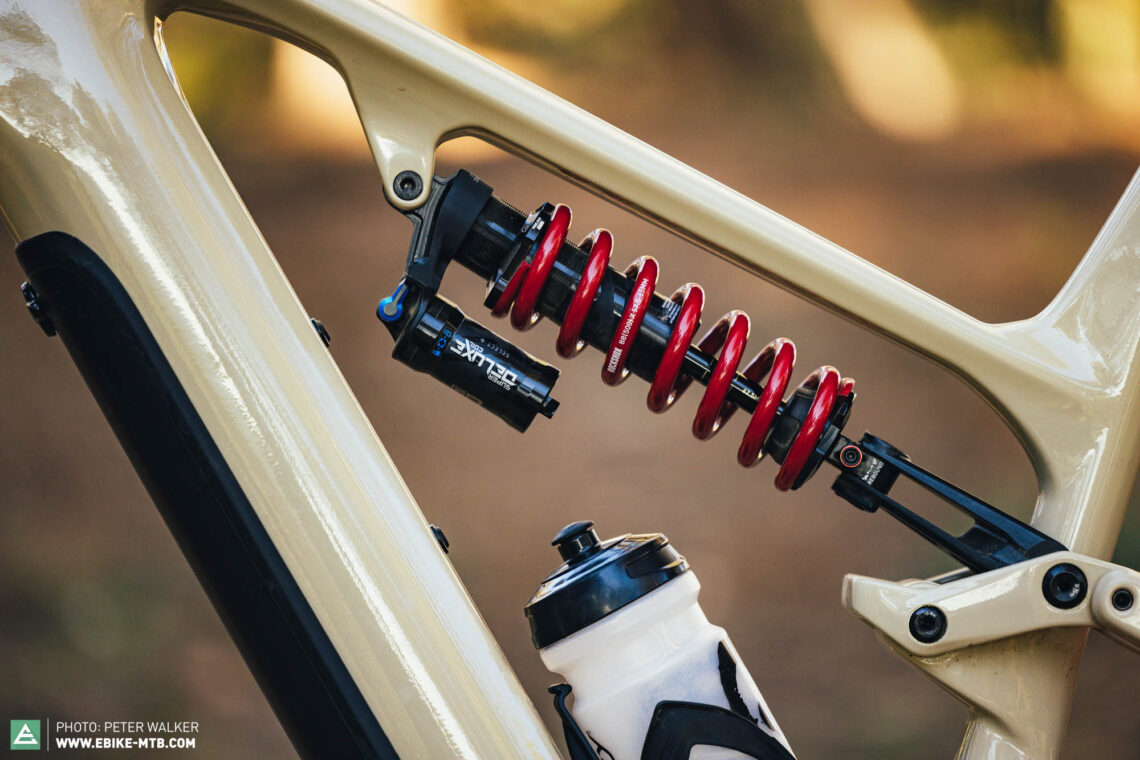
Cannondale’s “practicality over emotions” theme is also reflected in the design language. The most eye-catching feature is without a doubt the three-colour paint finish, which reminds us of a bag of chips with ketchup and mustard. Apart from that, the look of the Moterra is understated and functional. Countless rubber plugs protect the frame against the elements, covering vulnerable key spots like the battery lock, the motor mounts and bolts on the downtube. The cables are routed into the frame via the stem, ensuring a tidy cockpit. Just above the motor, the frame is discreetly asymmetrical, preventing dirt from accumulating under the bottle cage and allowing it to drain off the sides instead. A solid aluminium skid plate shields the motor from nasty impacts and rocks. In our opinion, the skid plate’s design could serve as a blueprint for the downhill racers in this test. SRAM CODE RSC brakes do stopping duties and are paired with a massive 220 mm rotor at the front and 200 mm disc at the rear, ensuring powerful and reliable deceleration both for sporty trail sessions and long tours with plenty of descents and luggage.
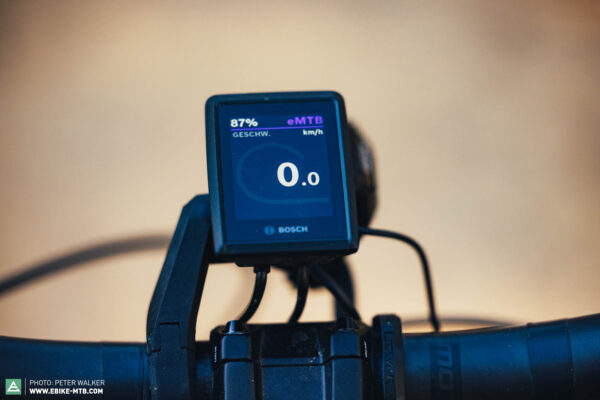
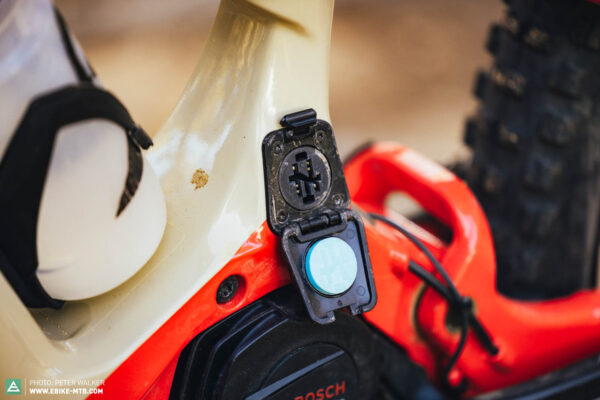
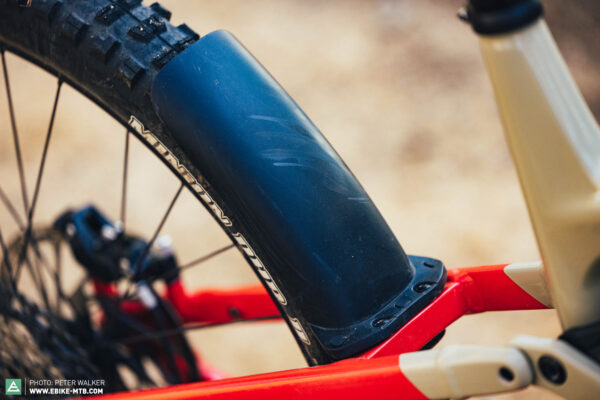
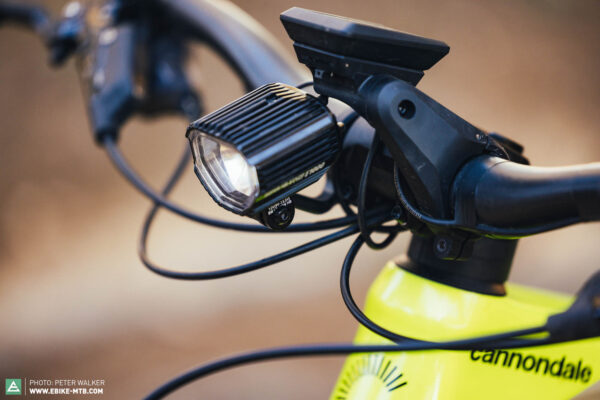
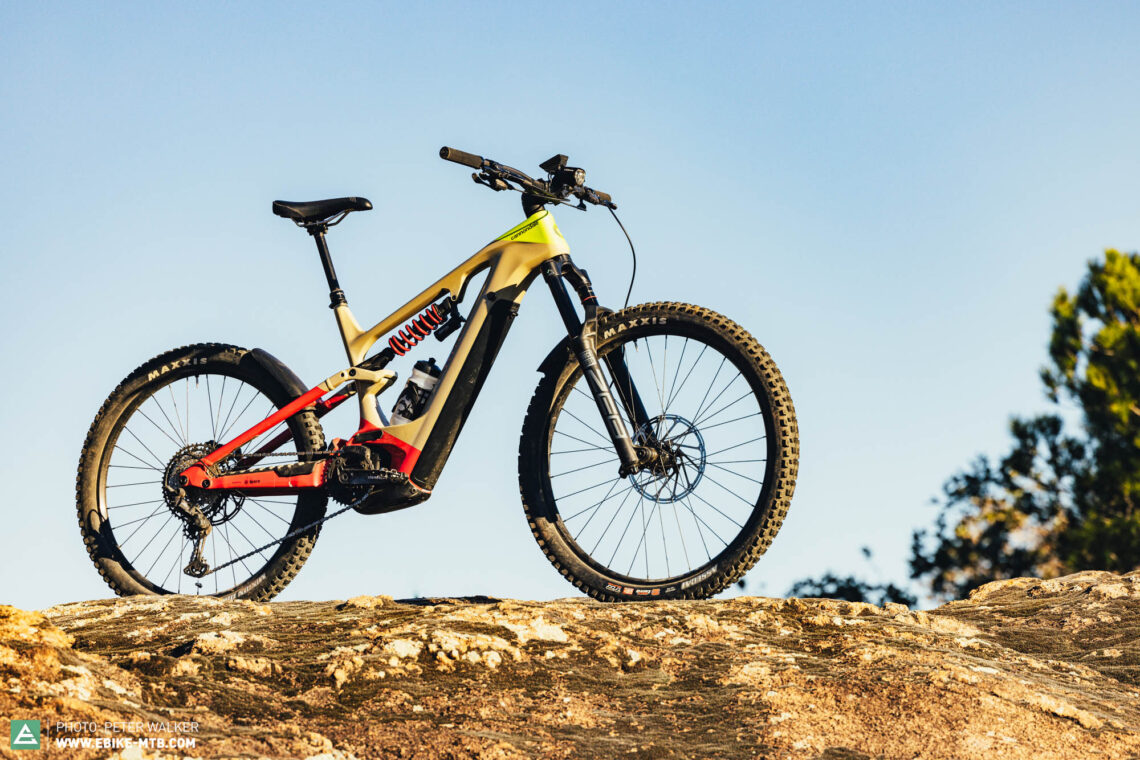
Cannondale Moterra Neo Carbon LT1
€ 8,999
Specifications
Motor Bosch Performance Line CX 85 Nm
Battery Bosch PowerTube 750 Wh
Display Bosch Kiox 300
Fork RockShox Zeb Select+ 170 mm
Rear Shock RockShox Super Deluxe Coil Select+ 165 mm
Seatpost Cannondale DownLow 150 mm
Brakes SRAM CODE RSC 220/200 mm
Drivetrain Shimano DEORE XT 1x12
Stem Cannondale 2 45 mm
Handlebar HollowGram 810 mm
Wheelset WTB KOM i30 Trail 29"/27.5"
Tires MAXXIS ASSEGAI 3C MaxxTerra EXO+/Maxxis Minion DHR II 3C MaxxTerra EXO+ 2.6/2.6
Technical Data
Size S M L XL
Weight 26 kg
Perm. total weight 150 kg
Max. payload (rider/equipment) 124 kg
Trailer approval yes
Kickstand mount yes
Specific Features
Lezyne light
Tuning tips: Retrofit a tail light for touring | Get your Bosch dealer to replace the spoke magnet with a valve magnet
What is the Cannondale Moterra NEO Carbon LT1 capable of?
According to Cannondale, the Moterra NEO Carbon LT1 is a nimble, fun trail machine with an added bonus of composure. To be frank, we missed the fun bit in this test. The plush suspension tune and comfortable riding position ensure a high level of comfort, making the Moterra NEO the best tourer in the entire test field together with the countless everyday features, huge battery range and the many clever functions of the Smart System motor system, including the eBike Lock and navigation. If you want to grind your way up the mountain on a trail, you’ll have to actively weight the front Wheel to prevent it from lifting. If you do so, the Moterra pushes you willingly up the hill, generating tons of traction in the process. However, in technical key sections it feels sluggish, falling behind more experienced climbers in this test, like the Orbea WILD and FLYER Uproc X. As soon as you turn your nose downhill, the Moterra’s chilled character becomes even more evident. The Cannondale integrates you nicely between its wheels, inviting you to cruise down the mountain on flowing lines rather than playfully hop down the hillside. Popping off small ledges requires great physical effort and instead, the Moterra prefers to take off on big, man-made jumps, stubbornly maintaining its sluggish, good-natured character, even when turning off from easy flow-trails into steeper, demanding terrain. Just like the FOCUS SAM², the Moterra makes you feel like a passenger, encouraging you to plough your way through nasty rock gardens rather than drawing a creative line around them. That said, the SAM² provides far more feedback from the ground in the process.
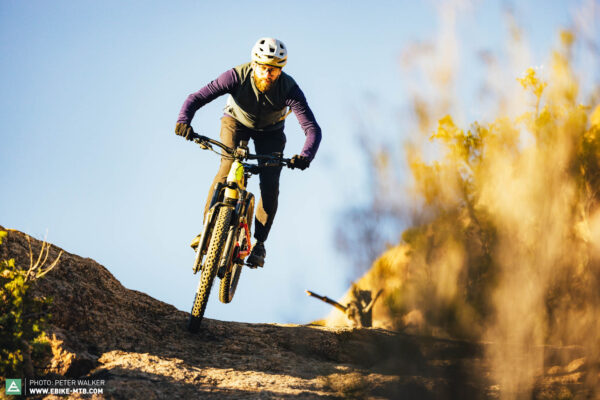
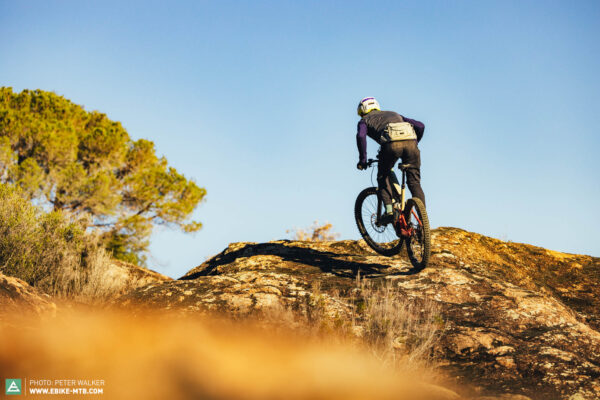
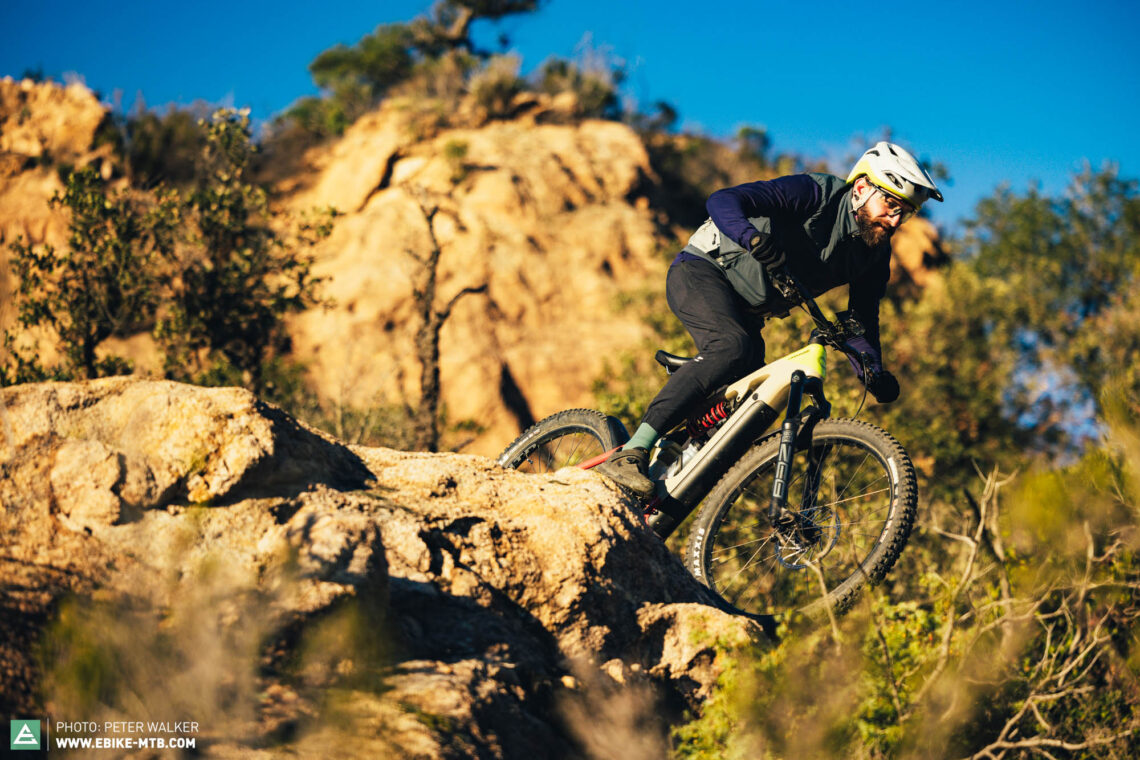
Hard shell, soft core. While at first glance, the Moterra NEO Carbon LT1 looks like a mean downhill machine, it turns out to be a real softie with plenty of touring comfort.
| Size | S | M | L | XL |
|---|---|---|---|---|
| Top tube | 580 mm | 602 mm | 634 mm | 671 mm |
| Seat tube | 400 mm | 460 mm | 460 mm | 490 mm |
| Head tube | 105 mm | 115 mm | 125 mm | 135 mm |
| Head angle | 64° | 64° | 64° | 64° |
| Seat angle | 76.5° | 76.5° | 76.5° | 76.5° |
| Chainstay | 452 mm | 452 mm | 452 mm | 452 mm |
| BB Drop | 11 mm | 11 mm | 11 mm | 11 mm |
| Wheelbase | 1,217 mm | 1,242 mm | 1,276 mm | 1,315 mm |
| Reach | 426 mm | 446 mm | 476 mm | 511 mm |
| Stack | 623 mm | 633 mm | 642 mm | 651 mm |
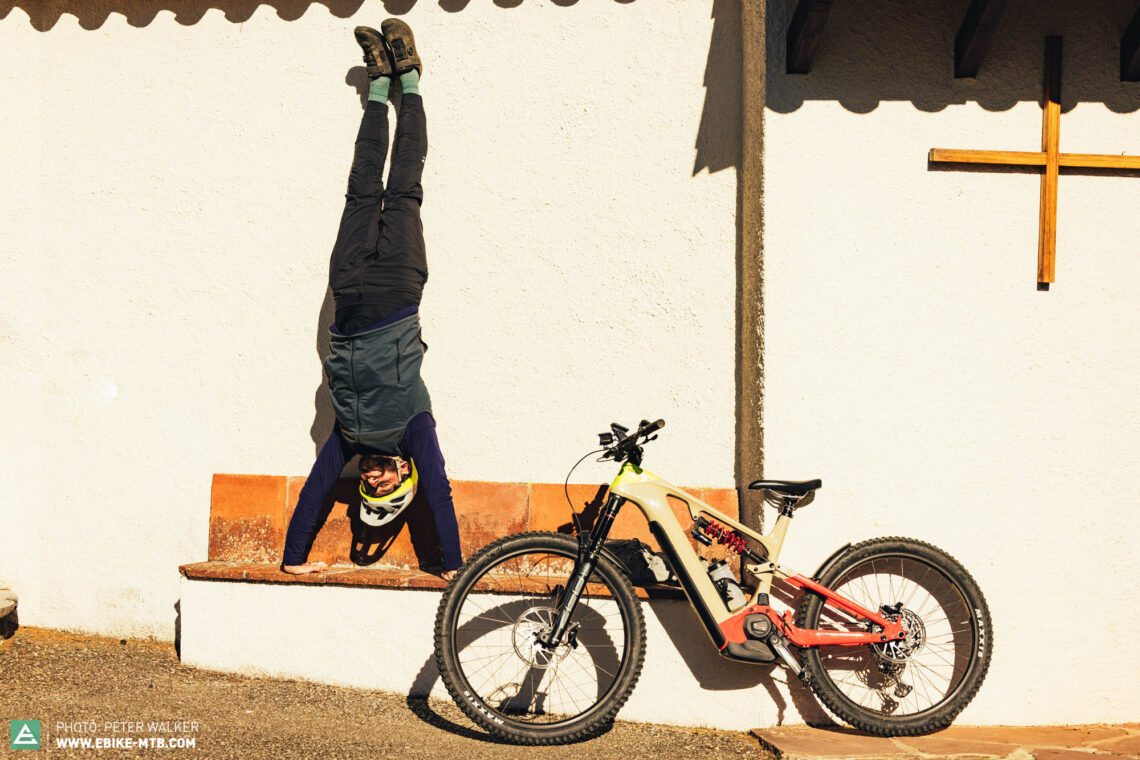
Who should take a closer look at the Cannondale Moterra NEO Carbon LT1 and who should look elsewhere?
If you get this bike, you’ll have nothing more to prove to other riders. If you choose the Moterra over the sportier eMTBs in this test, it’s because you value its good-natured character and high touring comfort. Nevertheless, the Cannondale doesn’t shy away from the occasional trail session either and even fancies a well-built flowline with long berms and big jumps from time to time. Active riders, on the other hand, should take a closer look at a bike like the Orbea WILD, which has a much livelier character.
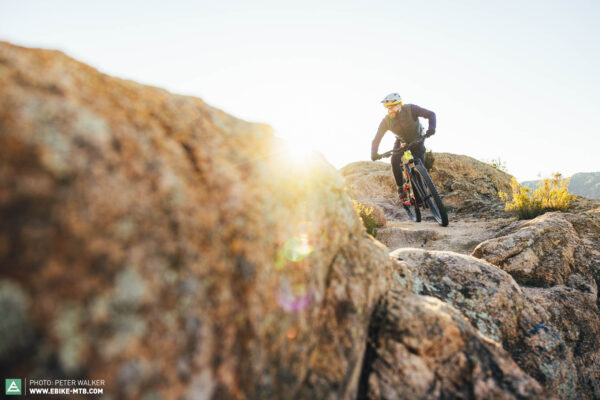

Riding Characteristics
DESIGN
- unbalanced
- coherent
USER FRIENDLINESS
- cumbersome
- clever
VALUE FOR MONEY
- flop
- top
TREKKING & COMMUTING SUITABILITY
- low
- high
HANDLING
- demanding
- intuitive
FUN FACTOR
- boring
- lively
Intended Use
Gravel roads
Technical climbs
Flowtrail descents
Technical descents
Conclusions about the Cannondale Moterra NEO Carbon LT1 2023
Countless everyday frame features, intuitive handling and huge riding comfort make the Cannondale Moterra NEO Carbon LT1 the best tourer in the entire group test – and the fair price is just the icing on the cake. However, the “one eMTB for every rider” doesn’t really work. In a nutshell, the Moterra is too passive for sporty riders. And while the spec sheet suggests a massive downhill potential, the Moterra doesn’t deliver the performance you expect on the trail. As a result, the Cannondale struggles to keep up with the fun factor of the more agile bikes in this test.
Tops
- High touring and everyday suitability
- Integrated headlight with high-beam function
- Great riding comfort
Flops
- Sluggish handling
- Design takes some getting used to
You can find out more about at cannondale.com
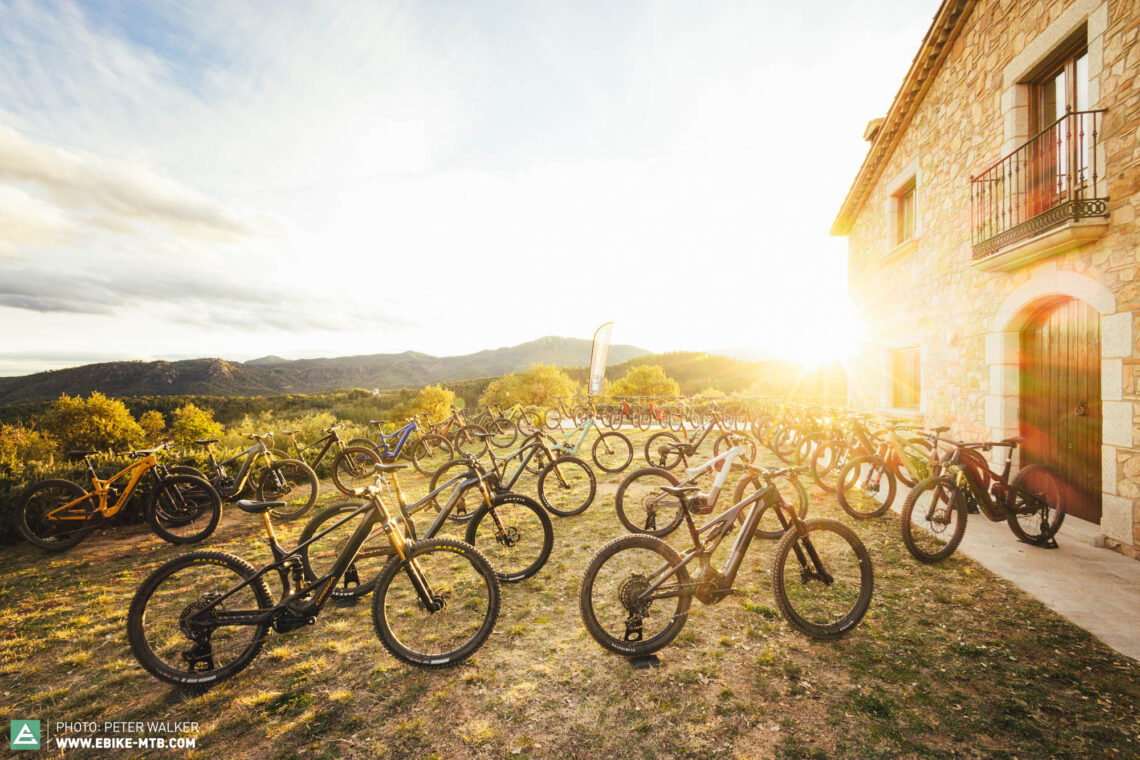
The test field
For an overview of the test fleet head to the group test: The best eMTB of 2023 – 30 models in review
All bikes in test: Berria Mako Hybrid GT LTD (Click for review) | Bulls SONIC EVO SL EN-1 (Click for review) | Cannondale Moterra Neo Carbon LT1 | Flyer Uproc X 9.50 (Click for review) | Focus SAM² 6.9 (Click for review) | Focus JAM² 6.9 (Click for review) | Focus Jam² SL 9.9 (Click for review) | Forestal Siryon Diōde (Click for review) | Giant Trance X Advanced E+ Ltd (Click for review) | Haibike Lyke CF SE (Click for review) | Ibis OSO (Click for review) | KTM Macina Prowler Exonic (Click for review) | MERIDA eONE-SIXTY 975 (Click for review) | Mondraker Crafty Carbon XR LTD (Click for review) | Moustache Samedi 29 Game 11 (Click for review) | Orbea Rise M-Team (Click for review) | Orbea WILD M-LTD (Click for review) | Pivot Shuttle SL Pro X01 (Click for review) | Pivot Shuttle LT Team XTR (Click for review) | Radon Deft 10.0 (Click for review) | Rotwild R.X735 Ultra (Click for review) | Santa Cruz Heckler MX XO1 AXS RSV (Click for review) | SCOTT Lumen eRide 900 SL (Click for review) | Simplon Rapcon Pmax TQ (Click for review) | Specialized Turbo Levo Expert (Click for review) | Transition Repeater AXS Carbon (Click for review) | Thömus Lightrider E Ultimate (Click for review) | Trek Fuel EXe 9.9 XX1 AXS (Click for review) | UNNO Mith Race (Click for review) | Yeti 160E T1 (Click for review)
Did you enjoy this article? If so, we would be stoked if you decide to support us with a monthly contribution. By becoming a supporter of E-MOUNTAINBIKE, you will help secure a sustainable future for high-quality cycling journalism. Click here to learn more.
Words: Rudolf Fischer Photos: Peter Walker




